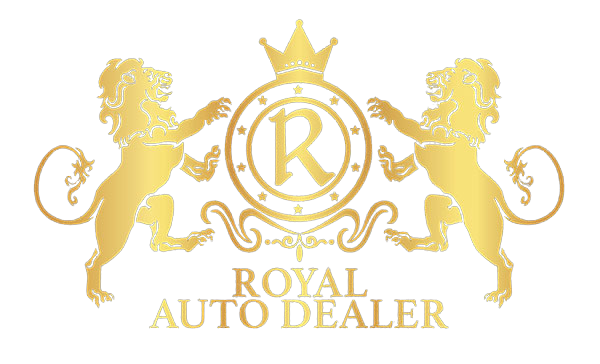Avoiding Common Mistakes When Purchasing from a Used Car Dealer
Posted Tuesday, Mar 26, 2024

Purchasing a used car can be an exciting yet daunting experience. While buying from a used car dealer can offer convenience and a wide selection of vehicles, navigating the process carefully is essential to avoid common pitfalls.
In this comprehensive guide, we'll explore some of the most common mistakes to avoid when purchasing from a used car dealer, empowering you to make a confident and informed decision.
-
Neglecting Research Beforehand
One of car buyers' biggest mistakes when purchasing from a used car dealer is neglecting to conduct thorough research beforehand. Before stepping foot on a car lot or browsing online listings, it's crucial to research different makes and models, as well as the reputation of the dealership itself.
Research the reliability and performance of various used car models that fit your budget and lifestyle. Websites like Consumer Reports and Edmunds offer valuable insights into the average prices, ratings, and common issues associated with different vehicles. Additionally, read reviews and testimonials about the dealership you're considering, gauging their reputation and customer satisfaction levels.
-
Skipping the Vehicle Inspection
Another common mistake buyers make is skipping the vehicle inspection process. While a car may look good on the surface, it must be thoroughly inspected by a trusted mechanic before purchasing. A pre-purchase inspection can uncover hidden issues or mechanical problems that may not be immediately apparent to the untrained eye.
During the inspection, the mechanic will evaluate the car's overall condition, including its engine, transmission, brakes, and suspension. They'll also check for signs of previous accidents or damage and any potential maintenance or repair needs. Getting a vehicle professionally inspected before purchase can prevent expensive repairs and future frustrations.
-
Not Obtaining a Vehicle History Report
Many buyers overlook the importance of obtaining a vehicle history report before buying a used car. You can learn a lot about a car's history from a vehicle history report, such as who owned it, how it was damaged, what the title says, how many miles it has, and more. By checking the vehicle history report, you can find out if there are any problems or risks with the car and decide if you want to buy it or not.
Services like Carfax and Auto Check offer comprehensive vehicle history reports that can be obtained using the car's vehicle identification number (VIN). Before finalizing the purchase, ask the dealer for a copy of the vehicle history report and review it carefully to ensure no undisclosed issues or discrepancies.
-
Failing to Negotiate the Price
One of the most significant advantages of buying from a used car dealer is the opportunity to negotiate the price. However, many buyers make the mistake of accepting the dealer's initial asking price without attempting to negotiate for a better deal.
Prior to starting negotiations, it's important to investigate the vehicle's market value, considering its condition, mileage, and any extra features it may have. Armed with this information, make a reasonable counteroffer based on what you believe the car is worth.
-
Overlooking Warranty Options
Finally, many buyers overlook the importance of considering warranty options when purchasing a used car from a dealer. While used cars may not have the same warranty coverage as new cars, many dealers offer extended warranty options or certified pre-owned programs that provide added peace of mind.
Before purchasing, inquire about the dealership's warranty options and review the terms and coverage provided. Consider investing in an extended warranty or certified pre-owned program to protect yourself against unexpected repairs and ensure that you're covered in the event of mechanical issues.
-
Failing to Test Drive the Vehicle
One common mistake a buyer makes when purchasing from a used car dealer is failing to test drive the vehicle before deciding. While a car may appear in good condition visually, it's essential to experience how it performs on the road firsthand.
You must schedule a test drive to evaluate the car's handling, acceleration, braking, and comfort. Consider unusual noises, vibrations, or warning signs indicating underlying mechanical issues. Testing driving multiple vehicles can also help you compare options and make a more informed decision.
-
Ignoring the Fine Print
When signing paperwork at a used car dealership, it's crucial to read and understand all the terms and conditions outlined in the contract. Many buyers make the mistake of ignoring the fine print or rushing through the paperwork without thoroughly reviewing it.
Take the time to read the contract carefully, paying attention to the purchase price, financing terms, interest rates, fees, and additional charges. Ensure you comprehend the terms and conditions thoroughly before finalizing the agreement. If you need any explanation or reassurance from the dealer, feel free to ask them.
-
Neglecting to Consider Total Cost of Ownership
When budgeting for a used car purchase, many buyers focus solely on the vehicle's sticker price without considering the total cost of ownership. This includes insurance premiums, taxes, registration fees, maintenance and repairs, fuel costs, and depreciation.
Overlooking these extra costs could result in financial difficulties. Before finalizing a purchase, take the time to calculate the total cost of ownership for the vehicle you're considering, and make sure it aligns with your budget and financial goals. Considering all the associated costs upfront, you can make a more informed decision and avoid surprises later.
Conclusion
Avoiding common mistakes when purchasing from a used car dealer requires diligence, research, and careful consideration. By conducting thorough research, inspecting the vehicle, obtaining a vehicle history report, negotiating the price, and considering warranty options, you can make a confident and informed decision that meets your needs and budget.
With these tips in mind, you'll be well-equipped to navigate the used car buying process and drive away with a reliable vehicle that brings you years of enjoyment.
Contact Royal Auto Dealer in Montclair,CA to buy a used car at the best price. We have a large selection of used cars in excellent condition. Get in touch with us today.
